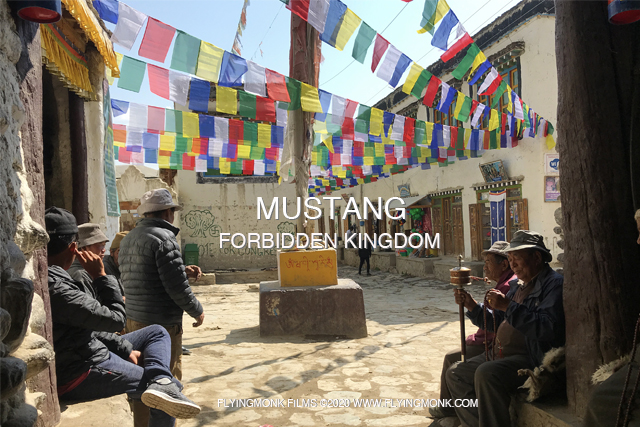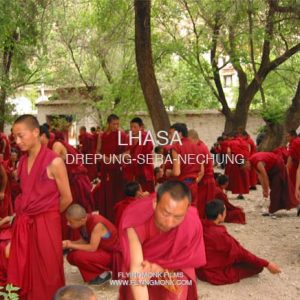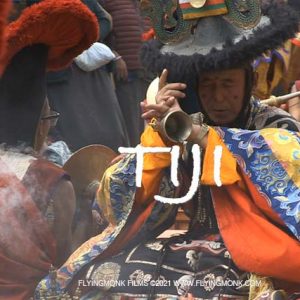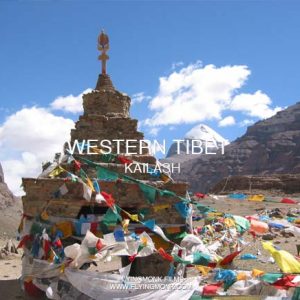Description
Mustang-Forbidden Kingdom
The Forbidden Kingdom of Mustang was ruled for seven centuries from its capital, the tiny village of Lo Manthang, a metropolis compared with the rest of the villages. With its thick surrounding wall and fortress gates, Lo Manthang looks that could withstand any attacks against its peaceful inhabitants. But they were not immune to spiritual attacks and in order to defend this front, the monks cleansed their town each year for the last five centuries in a spectacular Buddhist event, the Tiji Festival.
Mustang was a kingdom until around the beginning of this milennium. During the past centuries, Mustang was a Nepalese suzerainty led by its king who was a direct descendant from the founder of the kingdom. Around the 14th century, the Nepalese dynasty Malla conquered several territories in Ngari, the way western Tibet is named even nowadays.
Taking advantage of the lack of authority and instability caused by the conquests, in 1380, Ame Pai succeeded in squaring away a portion of the Malla territories and founded in these lands the Lo kingdom. He built its capital in the same year in Lo Manthang, deep into the “Prayer Valley”, a village that he surrounded on its entire perimeter with a defensive wall penetrated by citadel gates, a true metropolis for those times.
The descendants of the Malla dynasty returned in the 15th century and conquered Lo kingdom incorporating it as the suzerainty in their Nepalese kingdom, but preserving its local autonomy and the rule of the kings descending from Ame Pai’s direct lineage. The kingdom would have continued its medieval sleep into eternity if not for the Nepalese Maoist movement of the 21st century who forced Nepal’s king to abdicate paving the way to the birth of the Nepalese republic.
Once the country’s status changed the Lo Kingdom became overnight just a forsaken and distant region of Nepal. Meanwhile, King Jigme Dorje Palbar Bista died several years later, and “the Prince”, as people in Mustang call the king’s son, remained a respected figure but having mainly a decorative role.
But not many things changed in Lo Manthang where on the clay alleys frail hairy cows are handled with twig whips by women with faces tanned by the Himalayan sun.
The village is built like a labyrinth of houses of clay and stone, whitewashed and blistering in the unforgiving sun of its 3800-meter altitude.
Follow us on Instagram




